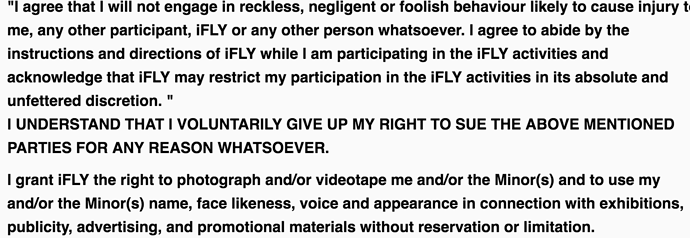Unfair Contract terms are not allowed under Australian Law and from a document from ConsumerLaw.gov.au is this "If a court finds a term is unfair, that term is void (treated as if it never existed). If the contract can operate without the unfair term, it will still be binding on all parties.A term of a consumer contract is unfair if it:
• would cause a significant imbalance in the parties’ rights and obligations arising under the contract
• is not reasonably necessary to protect the legitimate interests of the party who would be advantaged by the term; and
• would cause detriment (whether financial or otherwise) to a party if it were to be applied or relied on.
In deciding whether a term is unfair, a court may take into account the matters that it considers relevant but must take into account:
• the extent to which the term is transparent; and
• the contract as a whole
&
In deciding whether a term in a standard form consumer contract is unfair, the court or tribunal will apply the three–limbed test for unfairness. The test for unfairness, states that a term of a consumer contract is unfair if it:
• would cause a significant imbalance in the parties’ rights and obligations arising under the contract; and
• is not reasonably necessary to protect the legitimate interests of the party who would be advantaged by the term; and
• would cause detriment (whether financial or otherwise) to a party if it were to be applied or relied on.
All three limbs of the unfairness test must be proven to exist, on the balance of probabilities, for a court to decide that a term is unfair"
Section 24 of Australian Consumer Law states
" (1) A term of a consumer contract is unfair if:
(a) it would cause a significant imbalance in the parties’ rights and obligations arising under the contract; and
(b) it is not reasonably necessary in order to protect the legitimate interests of the party who would be advantaged by the term; and
(c ) it would cause detriment (whether financial or otherwise) to a party if it were to be applied or relied on.
(2) In determining whether a term of a consumer contract is unfair under subsection (1), a court may take into account such matters as it thinks relevant, but must take into account the following:
(a) the extent to which the term is transparent;
(b) the contract as a whole.
(3) A term is transparent if the term is:
(a) expressed in reasonably plain language; and
(b) legible; and
(c ) presented clearly; and
(d) readily available to any party affected by the term.
(4) For the purposes of subsection (1)(b), a term of a consumer contract is presumed not to be reasonably necessary in order to protect the legitimate interests of the party who would be advantaged by the term, unless that party proves otherwise"
